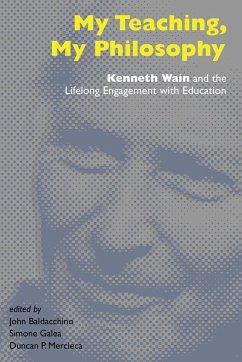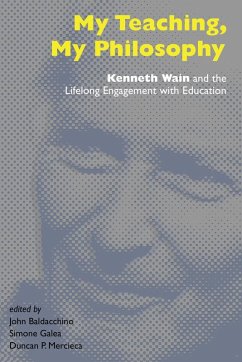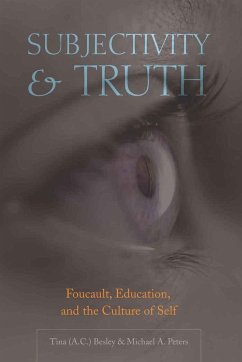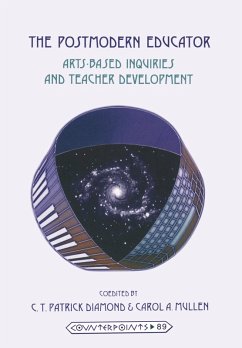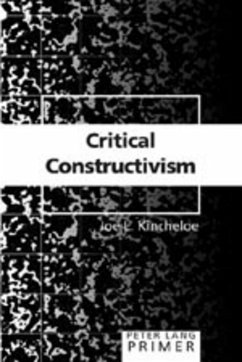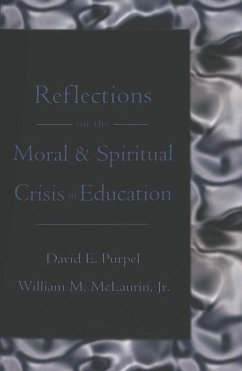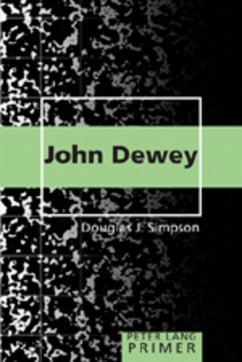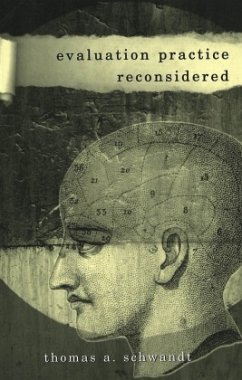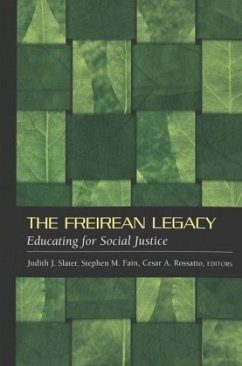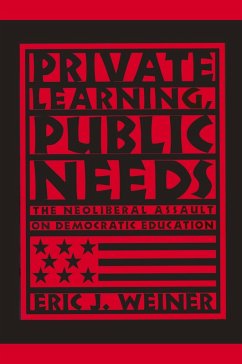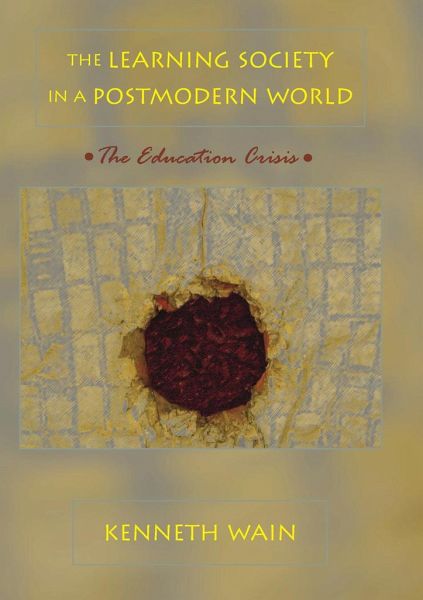
The Learning Society in a Postmodern World
The Education Crisis
Versandkostenfrei!
Versandfertig in 6-10 Tagen
40,50 €
inkl. MwSt.

PAYBACK Punkte
0 °P sammeln!
Lifelong learning has become a key concern as the focus of educational policy has shifted from mass schooling toward the learning society. The shift started in the mid 1960s and early 1970s under the impetus of a group of writers and adult educators, gravitating around UNESCO, with a humanist philosophy and a leftist agenda. The vocabulary of that movement was appropriated in the 1990s by other interests with a very different performativist agenda emphasizing effectiveness and economic outcomes. This change of interest, described in the book, has signified the death of education. The Learning Society in a Postmodern World explores different theoretical resources to respond to this situation, mainly those that propose some restoration of an educated public or, to the contrary, individual self-creation, and uses the works of a broad range of philosophers and thinkers - notably MacIntyre, Habermas, Foucault, Derrida, Rorty, and Baudrillard. In addition, it raises important questions about postmodern and poststructuralist responses to education in the postmodern world. Its comprehensiveness and historical background make it an essential textbook for theoretical courses in lifelong learning and in educational theory in general. A broad range of interests and subject matter make it important reading for educators, policy specialists, media specialists, researchers on the subject of lifelong learning and on the relation between education and the postmodern world, political theorists, philosophers, and philosophers of education.





